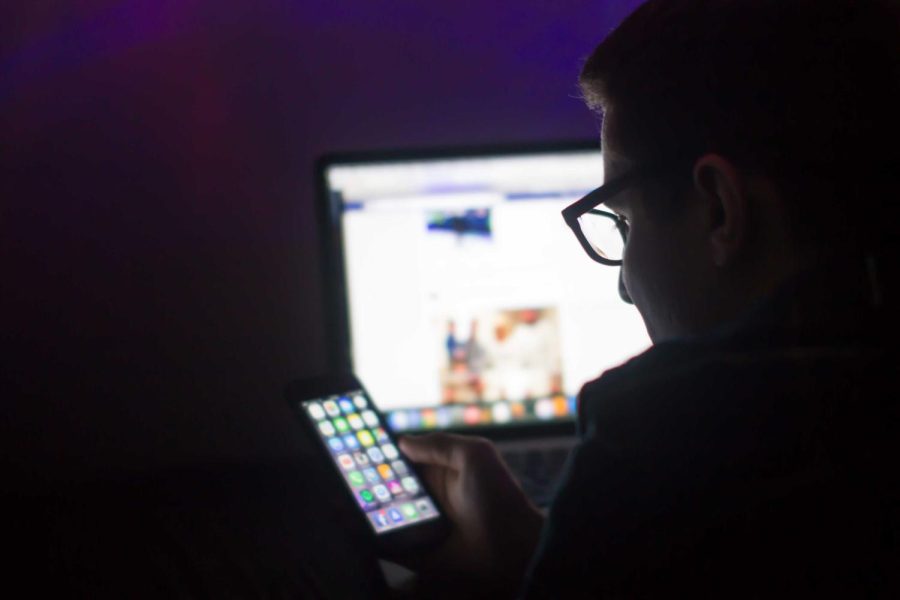Technology interrupts sleeping habits
Mario Fasolo, a senior visual communication design major, looks at his phone in the dark on Jan. 30, 2016.
In high school, Joseph Zadeh, a sophomore entrepreneurship major, would read books online so late that he “slept through his junior and senior years of high school.”
He would read Wikipedia until the “words would run together.”
Sometimes he played computer simulation games in full-screen mode and would not see the clock and realize how late it was.
Zadeh and many students’ use of phones and computers can prevent them from having a healthy sleep schedule.
“Cell use before bed (or checking the device in the middle of the night) predicts poor sleep,” said Jacob Barkley, associate professor of health sciences. “Over time, a lack of quality sleep can have a variety of consequences on physical and mental health.”
Barkley and Andrew Lepp, associate professor in the foundation, leadership, and administration department, have researched sleep quality relating to technology usage in university students.
“About 25 to 35 percent of college students do use the phone too much,” Lepp said. “We know this because their use is associated with many problematic outcomes such as poor sleep quality, reduced academic performance, increased anxiety, increased sitting, reduced fitness, et cetera.”
Barkley and Lepp teamed up with Jian Li, assistant professor in the foundation, leadership and administration department and recently published a study at the end of 2015 on how sleep deprivation affects sleep quality, academic performance and overall well-being.
The study was sent to 500 Kent State students. The survey asked students their perceptions of how well they slept last night and to reflect on how they normally sleep at night. Students also answered an additional 10 questions on sleep quality.
The results said students were delaying their bedtime to use their phone, which meant they got less sleep. These students who were using their phone at night tended to be the same students who use their phone a lot in the day.
While some people blame technology for lack of sleep, former student Sarah Stannard thinks differently.
“I feel that technology doesn’t aid in sleep issues, it just makes them more apparent,” Stannard said, who left the university last spring. “Most of the people I have encountered who use technology and have sleep deprivation use technology as a way to entertain themselves and escape the idea of having insomnia.”
Barkley said the blue light that illuminates cell phone screens can interfere with melatonin secretion, an important hormone for sleep. The interference could be a reason why cell phone use at bedtime is so detrimental to sleep.
Still, Zadeh said technology interrupting sleep is a fact of life.
“But there is no way to prevent that, especially (because) nowadays you have to be plugged in all the time,” he said.
Amy Kessler is a consumer tech reporter for The Kent Stater. Contact her at [email protected].



